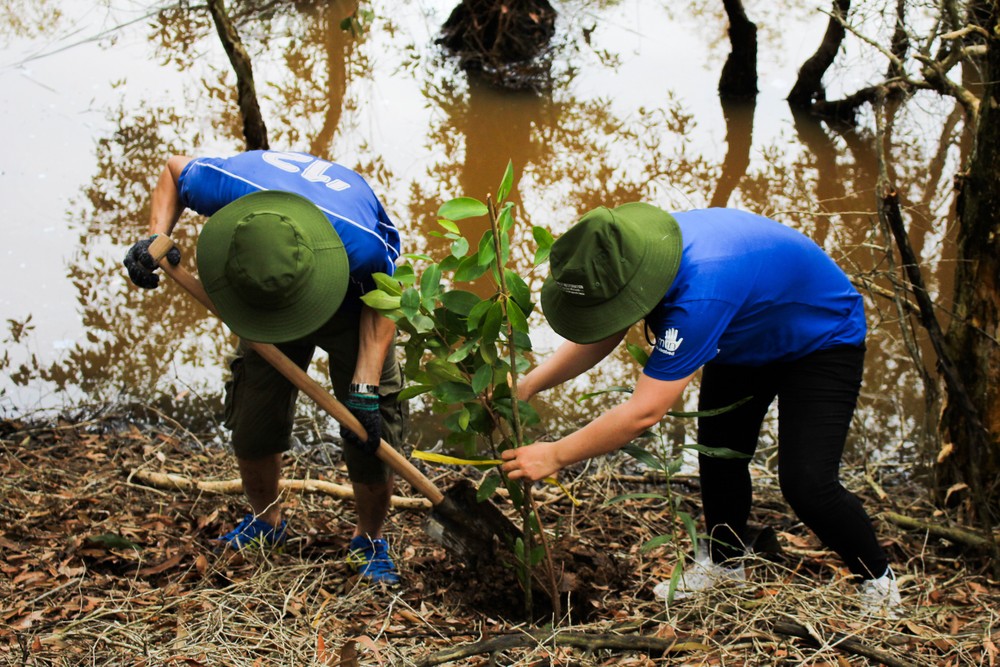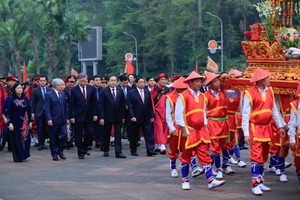
Officially established in 2004, LSWR is among the few natural remnants of the Plain of Reeds (Đồng Tháp Mười) and home to almost 400 flora and fauna species. The reserve provides natural resources and an ecosystem, such as fresh water and fisheries to 9,000 people in the surrounding areas.
Recent rapid changes in climatic factors like temperature and rainfall, as well as the hydrological regimes of the Mekong River, have led to serious degradation in the area’s forests. These changes have put further pressure on the ecosystem that plays a critical role in the regulating water in the Mekong Delta and providing sources of income for the local community.
In order to overcome this emerging challenge, WWF started its partnership with Intel in 2016 to restore the degraded forests, provide habitat for wildlife and ensure livelihoods for the local people whose lives heavily rely on the area’s ecosystem.
More than 12,000 native trees (plant species that have developed, occurred naturally, or existed for many years in an area and play a key role in local ecosystems) were planted during the project in 2016. The reforestation, with average tree survival rate over 80 percent, has contributed to WWF’s efforts in maintaining favourable conditions for wildlife, improving water regulation capacity of the wetland to better mitigate the negative impacts of floods and droughts, and providing non-timber products (such as Melaleuca oil, honey, medicinal herbs and forest ecotourism services) to support poor and considered-poor households in Lang Sen.
“The continual support from Intel to plant 7,000 more trees in 2017 will further replicate the positive impacts of the project since 2016 to the 5,030ha area of Lang Sen,” said Ms. Trinh Thi Long - Programme Coordinator, Freshwater, WWF-Vietnam, “it also contributes to WWF’s strategic plan in increasing the resilience of Lang Sen Wetland Reserve and surrounding communities in the ever-changing context of climate change.”
























